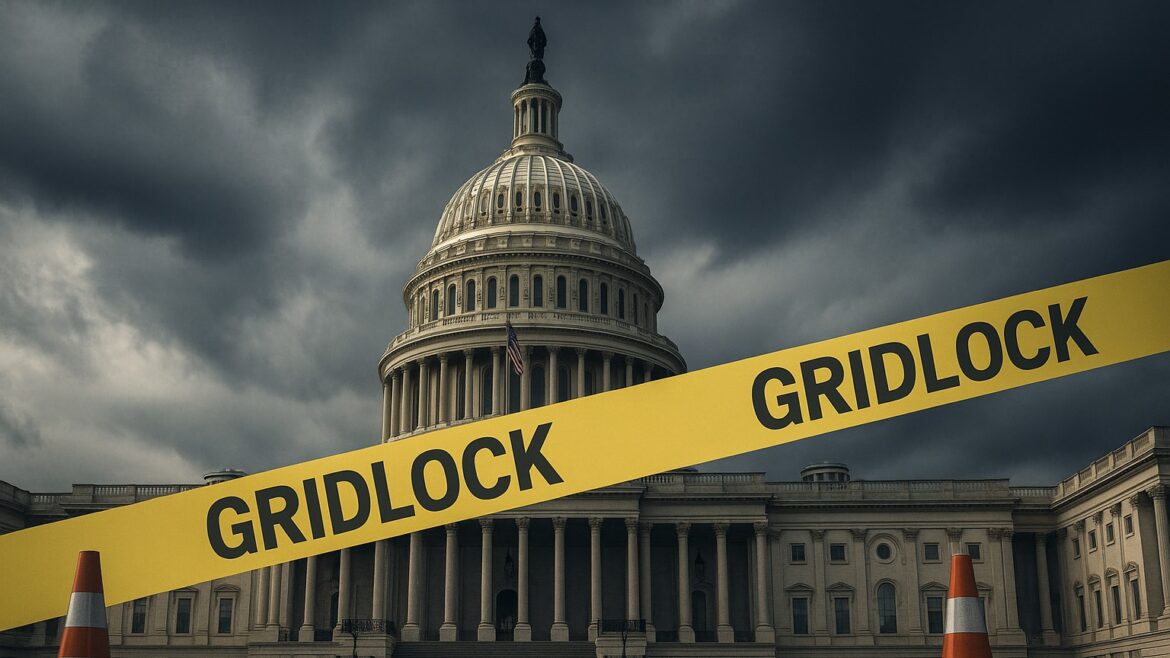In their usual cat-and-mouse games, the Democrats and Republicans were at loggerheads during the week as they raced to pass a new spending bill before the current one expires on the 20th of December to avoid a costly shutdown of the U.S. government during the festive season. If the current Continuing Resolution (CR) that’s been funding the government operations is allowed to expire without a new spending bill passed into law by the U.S. Congress, many government agencies will run out of funds resulting in a partial shutdown of the government.
The implications of these are that hundreds of thousands of federal employees will be furloughed and many essential government services will be disrupted during the festive season when these services may be needed the most due to increased human activities to celebrate the season. Passing the spending bill before Christmas would ensure continuity of government services and prevent the negative consequences of a government shutdown.
While it’s not unusual for Democrats and Republicans to be at loggerheads over the most mundane issues, the motivation for Elon Musk’s participation in the debate is quite unclear. It appears that his influence on the Republicans led to a deadlock in passing the bill. Understandably, politicians are accustomed to playing politics with governance issues but they need to rise above partisan politics in the discharge of their duties. Their failure to pass the spending bill could result in the furlough of hundreds of thousands of federal employees, who are forced to take unpaid leave. This not only affects their personal finances but also reduces consumer spending, which can have a ripple effect on the economy.
It will also lead to a disruption of government services, including the shutdown of national parks, museums, and federal agencies. This can impact tourism, businesses that rely on government services, and individuals who depend on these services. It will also lead to a delay in payments to federal contractors, vendors, and beneficiaries of government programs, such as Social Security and Medicare which will then create cash flow problems for businesses and individuals that depend on government spending for their revenues.
Broader economic implications of a government shutdown could result in reduced economic growth, as federal spending is a significant contributor to the country’s GDP. A shutdown can also lead to reduced consumer spending, business investment, and confidence. The shut-down will also lead to increased borrowing costs as individuals and businesses that are affected by the shut-down might resort to borrowing to bridge their financial shortfall thus increasing the demand for credit which will result in a corresponding increase in interest rates
A government shutdown can create uncertainty and volatility in financial markets, leading to stock market fluctuations, reduced investor confidence, and potential losses for investors. It can also lead to a delay in the release of important economic data, such as GDP growth rates, inflation rates, and unemployment rates. This can make it challenging for businesses, investors, and policymakers to make informed decisions in managing the economy.
Apart from the economic implications of a government shutdown, there are also national security concerns as a shutdown could compromise national security by disrupting critical operations, including border security, intelligence gathering, and even cyber-security.
To resolve this impasse and avoid a costly shutdown of the government, it is advisable that Congress passes a short-term continuing resolution (CR) to temporarily fund the government and avoid a shutdown. Lawmakers should also work towards passing an omnibus spending bill, which would provide funding for the remaining fiscal year. This approach would require bipartisan cooperation and compromise.
A more sustainable solution would involve comprehensive budget reforms, addressing the root causes of the current budgetary impasse. This could include measures such as entitlement reform, tax reform, and reductions in government spending as proposed by the incoming Trump administration while efforts are also made to reduce the deficit and bring down government debt to more sustainable levels.
The implications of a lapsed spending bill are far-reaching and potentially devastating. As the holiday season approaches, lawmakers need to put aside partisan differences and work towards a solution. A short-term CR or an omnibus spending bill may provide temporary relief, but comprehensive budget reforms are necessary to address the underlying issues and ensure the long-term fiscal health of the United States.
Oshobi, a development economist, management consultant, and author writes from Lagos, Nigeria.

